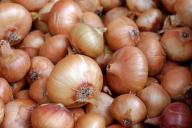Before you choose some plants to grow in your garden, you should learn more about your climate and its features.
While a hot climate is usually better for gardening than a cold climate, it can still not be suitable for some plants.
Here are a few examples of plants that might be harder to grow in your hot climate.

Lettuce
Delicate leafy greens, like lettuce, often find the heat challenging. They may wilt quickly and struggle to develop in intense sunlight.
Opt for heartier greens like kale or Swiss chard as alternatives.
Pansies
Pansies, known for their cool-weather resilience, can wither under excessive heat.
Their preference for milder temperatures makes them less suitable for the blazing sun.
Explore heat-tolerant flowers like marigolds or zinnias for vibrant alternatives.
Peas
Peas are cool-season champs but tend to falter in hot weather. They may struggle to produce pods and can succumb to heat stress.
Swap them for heat-loving beans or okra for a more bountiful harvest.
Spinach
Much like lettuce, spinach prefers cooler conditions.
In a hot climate, it might bolt (go to seed) prematurely, resulting in a shortened harvest window.
Consider heat-resistant greens such as Malabar spinach or amaranth.
Broccoli
Broccoli's craving for cooler temperatures makes it a challenging candidate for hot climates.
While it may still grow, the quality and size of the heads might suffer. Opt for heat-tolerant alternatives like peppers or eggplant.
Cauliflower
Similar to broccoli, cauliflower tends to struggle in the heat. High temperatures can result in uneven head formation or premature bolting.
Consider heat-resistant vegetables like sweet potatoes or cherry tomatoes.
Delphinium
Delphiniums, known for their tall, majestic spikes of blooms, may not fare well in hot weather.
They prefer cooler temperatures and may struggle to thrive. Opt for heat-resistant perennials like daylilies or black-eyed Susans.
Previously, we've talked about growing Capsicum.












